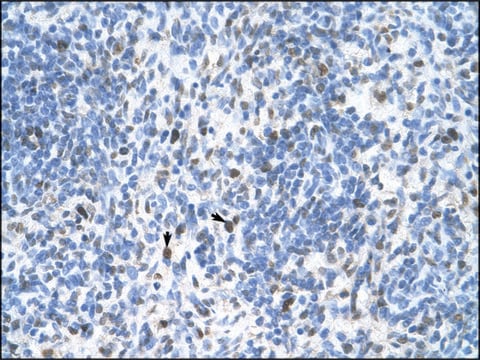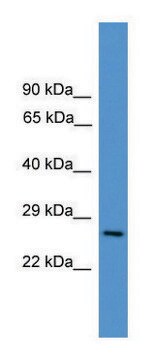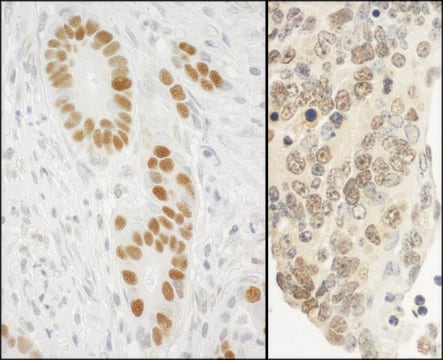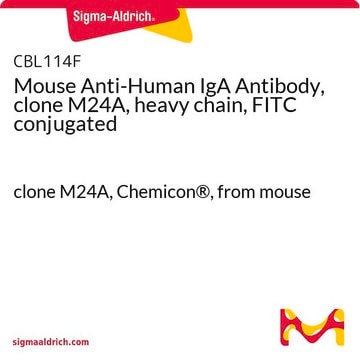SAB4200708
Anti-Proliferating Cell Nuclear Antigen antibody, Mouse monoclonal
clone PC 10, purified from hybridoma cell culture
Synonim(y):
Anti-ATLD2, Anti-Cyclin, Anti-PCNA
About This Item
Polecane produkty
pochodzenie biologiczne
mouse
forma przeciwciała
purified from hybridoma cell culture
rodzaj przeciwciała
primary antibodies
klon
PC 10, monoclonal
Postać
buffered aqueous solution
masa cząsteczkowa
antigen ~36 kDa
reaktywność gatunkowa
monkey, rat, insect, mouse, yeast, human
stężenie
~1.0 mg/mL
metody
ELISA: suitable
flow cytometry: suitable
immunoblotting: 0.5-1 μg/mL using human foreskin fibroblast HS-68 cell line extract
immunofluorescence: 1.25-2.5 μg/mL using HeLa cells
immunohistochemistry: 10 μg/mL using heat-retrieved formalin-fixed, paraffin-embedded human Tonsil sections.
immunoprecipitation (IP): suitable
izotyp
IgG2a
numer dostępu UniProt
Warunki transportu
dry ice
temp. przechowywania
−20°C
docelowa modyfikacja potranslacyjna
unmodified
informacje o genach
human ... PCNA(5111)
Opis ogólny
Specyficzność
Immunogen
Zastosowanie
- enzyme-linked immunosorbent assay (ELISA)
- immunoblotting
- flow cytometry
- immunohistochemistry
- immunoprecipitation
- immunofluorescence
Działania biochem./fizjol.
Postać fizyczna
Przechowywanie i stabilność
Oświadczenie o zrzeczeniu się odpowiedzialności
Nie możesz znaleźć właściwego produktu?
Wypróbuj nasz Narzędzie selektora produktów.
Kod klasy składowania
10 - Combustible liquids
Temperatura zapłonu (°F)
Not applicable
Temperatura zapłonu (°C)
Not applicable
Certyfikaty analizy (CoA)
Poszukaj Certyfikaty analizy (CoA), wpisując numer partii/serii produktów. Numery serii i partii można znaleźć na etykiecie produktu po słowach „seria” lub „partia”.
Masz już ten produkt?
Dokumenty związane z niedawno zakupionymi produktami zostały zamieszczone w Bibliotece dokumentów.
Nasz zespół naukowców ma doświadczenie we wszystkich obszarach badań, w tym w naukach przyrodniczych, materiałoznawstwie, syntezie chemicznej, chromatografii, analityce i wielu innych dziedzinach.
Skontaktuj się z zespołem ds. pomocy technicznej








